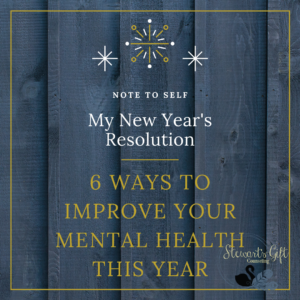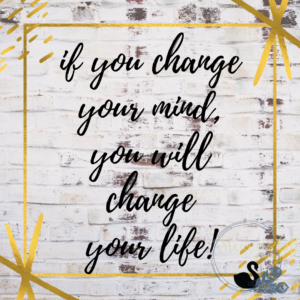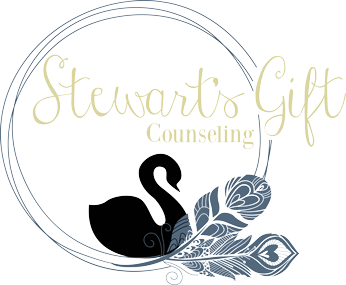
There is an eagerness for the new year to begin, so new goals for self-improvement can be set. Here is a shocking fact: most people never accomplish the resolution they set for themselves! Okay, it’s probably not very surprising, if you are part of the 92% who are unsuccessful with their new year resolutions, then you are not alone! I want to briefly encourage you to set some goals that will improve your mental health. Accountability and having professional help to maximize your benefits will significantly increase your odds of rising above the 92% to join the meager 8% who are changing their lives.
I am a firm believer as a mental health professional, if you change your mind, you will change your life!
HERE ARE 6 WAYS TO IMPROVE YOUR MENTAL HEALTH THIS YEAR
- Increase Your Sleep
As an adult, you should average 7-9 hours of sleep per night. We live in a world that pushes us to the brink reducing the amount of sleep we get per night. We are stimulated by stress or screen time, making insomnia an epidemic. The lack of sleep is also causing anxiety (40 million US adults) and depression (15.1 million US adults) reaching an all-time high.
Here is my advice:
- No screen time two hours before bed
- Have a nightly routine that involves winding down and being intentional to slow the mind and body
- Stretch your body and muscles before going to bed; This helps the body relax and drift off to sleep easier.
- There are YouTube videos that will help with nighttime stretching routines.
- Use apps such as HeadSpace, Calm, or Asana Rebel that offer sleep meditations or music
- Turn off the lights and sleep in the dark
- To begin, shift your current sleep schedule by 30 minutes. Continue to add half-hour increments to your plan until you accomplish 7-9 hours each night.
- Aerobic Exercise
Did you know that completing aerobic exercise 3 times per week for 30 minutes each time is researched to reduce depression and anxiety significantly? Aside from anxiety and depression, aerobic exercise has researched benefits to prevent dementia, improve cognitive tasks, reduce stress for increased mental clarity/endurance. Aerobic exercise is defined as exercise that increases the circulation of oxygen and results in an increased rate of breathing.
Here is my advice:
- Start where you can, give yourself grace, and set the goal to work up to 3 x 30.
- Find an accountability partner: family, friends, personal trainer, therapist
- Options for aerobic exercise: running, cycling, walking, swimming, aerobics classes, etc. There are options for anyone at any level.
- Meditation
Meditation isn’t just for yoga! Research shows in as little as four weeks of practicing daily meditation, you will notice a difference. Benefits of mediation include mental clarity, stress reduction, anxiety relief, a sense of calm and control, compassion for yourself and others. Meditation is also researched to improve the quality of sleep and to increase the ability to focus by 14%.
Here is my advice:
- Find a meditation app that works best for you. Calm and Headspace are two of the most widely used apps for daily meditation practice
- Meditate every morning to begin your day with clarity, calm, and focus
- Meditate at bedtime to unwind, clear your mind, and sleep well
- Decrease Screen Time
Even one hour of screen time per day significantly reduces psychological functioning. Did that catch your attention? When was the last time you had less than one hour of screen time in 24-hours? It’s not realistic in our tech-driven lifestyles. Still, any reduction of screen time will prove to increase your psychological functioning. Did you know excessive screen time for adolescents is linked to suicide? The benefits of decreased screen time for all ages include increased self-control, increased focus and task completion, improved interpersonal relationships, and increased emotional regulation.
Here is my advice:
- You can use settings on your device to power off or disable apps or the internet at certain times. This will help you stay accountable.
- When you begin your two-hour wind down before bed, power off your phone and place it in another room so it won’t be tempting you.
- Do not keep your phone by your bed. Ever. It is unhealthy to have the light flashing on and off throughout the night. You also want to break the habit of scrolling your phone until you fall asleep and scrolling your phone to wake up in the morning. Phones are a time warp.
- Get Organized
Spring clean in January! Being organized is not everyone’s gift, it is okay to hire a professional organizer or ask a friend or family member to help you clean out the clutter. If you suffer from hoarding, seeking professional help will be necessary to work past the trauma that created the hoarding in the first place. Clutter increases stress, anxiety, depression, and insomnia. Clutter decreases the ability to concentrate on task completion. There are researched benefits to getting organized, including increased productivity, depression or anxiety reduction, and better sleep quality.
Here is my advice:
- Start in the bedroom. Reaping the benefits of better sleep will help you tackle the rest of the home. This will become your sanctuary of sorts.
- Second, pick the room you feel most stressed in. You can always retreat to the bedroom if you’re feeling overwhelmed.
- This is a process, so manage your expectations here: depending on the organizational needs, this could take weeks or months to complete. That is okay. Progress is progress.
- Ask for help. There is no shame in improving your mental and emotional health!
- Volunteer
Humans are created to serve one another; the psychological benefits are difficult to argue with. Serving others is linked to increased self-confidence, reduced depression, an increased sense of purpose and belonging, and reduced social anxiety. Serving also combats feelings of loneliness or isolation while registering in the reward center of the brain.
Here is my advice:
- There are websites that will help you find volunteer opportunities: volunteermatch.org is widely used and trusted.
- See if you have friends or family who would like to volunteer with you.
- Try new things and find new passions. You may be surprised by what brings you joy.
This is a new year and an opportunity for you to forge the way to mental health! Remember, you can always ask a mental health professional to walk you through your new year resolutions to optimize the mental health benefits!
Here’s to a new year filled with positive changes! Join the 8% and become the best and most functional version of you!

